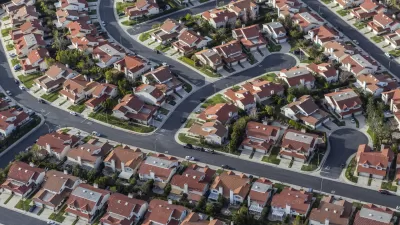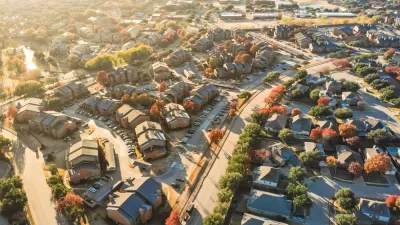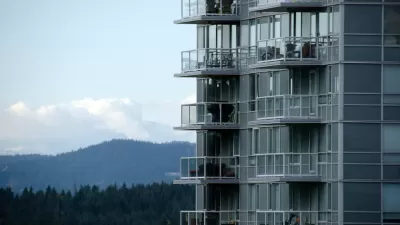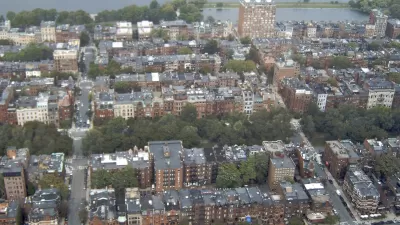New research shows growing segregation over the last two decades in the majority of large metropolitan areas.

Despite the country's population growing more diverse, "[m]ore than 80% of large metropolitan areas in the United States were more segregated in 2019 than they were in 1990, according to an analysis of residential segregation released Monday by the Othering & Belonging Institute at the University of California-Berkeley." Alana Semuels reports on the research for Time Magazine, writing that "within metropolitan areas, the different races are clustered in segregated neighborhoods, creating social and economic divisions that can fuel unrest."
To assess segregation on a granular level, the report breaks down "how the racial makeup of census tracts differs significantly from the racial makeup of the larger metropolitan area that surround them." While metropolitan areas may appear integrated, overall diversity belies severe–and worsening–neighborhood-level segregation. This matters because "even before the pandemic, research showed that the neighborhood where children grow up shapes how likely they are to go to college and to make more money than their parents. It determines their access to medical care and good schools."
Meanwhile, federal efforts to mandate integration lack teeth, and the legacy of redlining and exclusionary zoning laws continue to affect Black households and hamper their ability to generate wealth through homeownership. Recent efforts to eliminate single-family zoning have the potential to "allow the construction of more housing, which would lower housing prices and allow for a more diverse population," but many cities are facing massive housing shortages that would take years to alleviate.
"As many affluent Americans get the freedom to work remotely and live where they like in the aftermath of the pandemic," writes Semuels, "it calls into question whether the country will only get more segregated as wealthy people flee cities for suburbs."
FULL STORY: The U.S. Is Increasingly Diverse, So Why Is Segregation Getting Worse?

Planetizen Federal Action Tracker
A weekly monitor of how Trump’s orders and actions are impacting planners and planning in America.

Maui's Vacation Rental Debate Turns Ugly
Verbal attacks, misinformation campaigns and fistfights plague a high-stakes debate to convert thousands of vacation rentals into long-term housing.

San Francisco Suspends Traffic Calming Amidst Record Deaths
Citing “a challenging fiscal landscape,” the city will cease the program on the heels of 42 traffic deaths, including 24 pedestrians.

Trump Prompts Restructuring of Transportation Research Board in “Unprecedented Overreach”
The TRB has eliminated more than half of its committees including those focused on climate, equity, and cities.

Amtrak Rolls Out New Orleans to Alabama “Mardi Gras” Train
The new service will operate morning and evening departures between Mobile and New Orleans.

The Subversive Car-Free Guide to Trump's Great American Road Trip
Car-free ways to access Chicagoland’s best tourist attractions.
Urban Design for Planners 1: Software Tools
This six-course series explores essential urban design concepts using open source software and equips planners with the tools they need to participate fully in the urban design process.
Planning for Universal Design
Learn the tools for implementing Universal Design in planning regulations.
Heyer Gruel & Associates PA
JM Goldson LLC
Custer County Colorado
City of Camden Redevelopment Agency
City of Astoria
Transportation Research & Education Center (TREC) at Portland State University
Jefferson Parish Government
Camden Redevelopment Agency
City of Claremont





























